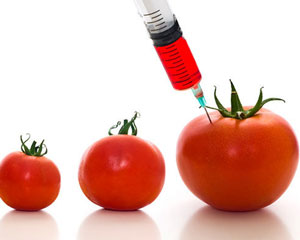
GENETICALLY-modified foods (GMOs) are safe for human consumption and have no side effects, an American biotechnology expert stated last week.
BY PHYLLIS MBANJE
Over the years, concerns have been raised in Zimbabwe over the safety of GMOs and their long-term effects on human beings.
But visiting US-based Wayne Parrott from the University of Georgia in the US, said contrary to common beliefs that GMOs were harmful, over 600 studies conducted over the years had proved that they were safe for human consumption.
Parrott, a professor of Crop Science specialising in plant breeding and genomics, was responding to a question on the safety of GMOs during a live social media chat held in Harare recently.
“No negative side-effects. They [GMOs]are as safe as conventional food,” he said.
Parrott said some countries in Africa were slowly adopting the concept.
“It is happening slowly but surely,” said Parrott. “There are GM crops being planted in South Africa, Burkina Faso, Sudan and Egypt. “People avoid the use of GMOs as a natural aversion to new technologies, which breeds misinformation but it can be overcome with education.”
- Chamisa under fire over US$120K donation
- Mavhunga puts DeMbare into Chibuku quarterfinals
- Pension funds bet on Cabora Bassa oilfields
- Councils defy govt fire tender directive
Keep Reading
Parrott has published over 80 journal articles in revered publications, along with 12 book chapters and three patents.
Zimbabwe has instituted a ban on GMOs until studies have been conducted on the possible effects on health and environment.
However, some of the members of the public who participated in the live media chat insisted that GMOs should be fully explored.
“GMO food has not been sufficiently tested for its effects upon the human body. Recent tests however, suggest they are a biochemical hazard to humans. Not to mention they lack the average nutritional content of organic food,” said one listener.
A food advocacy group formed by Food Matters Zimbabwe (FMZ), a local non-governmental organisation, has called on all citizens to contribute to ongoing debates on the health and environmental effects of GMOs, which have largely remained an unknown subject in the country.
The group, which consisted of experts from various sectors like agriculture, civic society, biotechnology and ordinary citizens, pledged at a GMO meeting recently that they would come up with a position paper that specifies the course of action that should be taken to ensure that the country is safeguarded against an influx of GMOs.
The group said there was little detailed research-based information on what GMOs are and the likely effect that they may have on humans and the environment.
Speaking at the same meeting, Isaiah Mharapara from Food, Agriculture and Natural Resources Policy Network (Fanrpran) said there was need to get tangible evidence to help consumers make informed decisions on GMOs.
“Currently, the government is taking a precautionary stance, there is no information on GMOs and their effects,” he said.
Mharapara also said it was prudent that GM foods should be labelled so that the consumers know what they are eating and make an informed choice.
“Most of these countries that produce GMOs do not label their products, which is unfair to the end-user. It should be mandatory to label GM foods,” he said.
Food Matters Zimbabwe representative, John Wilson said multinational companies were benefitting from the production of GMOs, at the expense of foods that are produced locally.
“Very little is going into sectors like agro-economy which recognises the role of indigenous knowledge systems,” he said.
Wilson said countries like the United States, Brazil, Argentina and South Africa were planting huge tracts of GMOs.
Wilson said in 2010 the USA produced 67 000 hectares of GMOs, a clear sign that it was big business.
“A lot of money goes into the process of genetic enhancement, wouldn’t it be better to channel that money into productive sectors?” he said.











